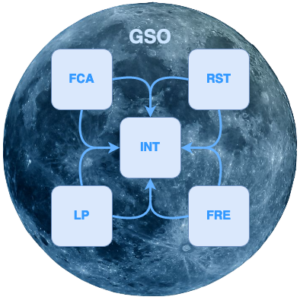MOONRISE
Mathematical tOols fOr Non-canonical Reasoning and Intelligent SystEms (MOONRISE)
Title in Spanish: Herramientas matemáticas para el razonamiento no canónico y sistemas inteligentes

Summary:
Nowadays, it is really important the design of intelligent systems to many application fields, such as energy efficiency, healthcare, smart cities, etc., which can help human to decision-support in relevant problems, such as automatic faults detection in photovoltaic solar/wind turbine power stations, cancer detection, conflict and crime prevention, etc. These systems not only must prevent and/or detect specific situations, but they must achieve at least two relevant challenges: being trustworthy and preserving the ethical and data protection regulations (national, european and international). For the first one, a new concept called Explainable Artificial Intelligence (XAI) was introduced in 2015, concerning the second Federated Learning (FL), among others, have been developed, which allow to perform Artificial Intelligence (AI) functions locally or in collaboration with other devices. Moreover, the datasets obtained from devices, sensors, check-lists, etc., usually contain inaccurate, incomplete or uncertain information (noise). Therefore, it is also relevant to consider formal tools being able to handle these kinds of datasets. Four of the most consolidated and useful formal tools to reach these goals are: Formal Concept Analysis (FCA) and Rough Set Theory (RST), in the classical and fuzzy framework, Fuzzy Relation Equations (FRE) and Fuzzy Logic (FL).
Thus, this project will be focused on these three challenges developing these solid mathematical tools, which offer capabilities for designing robust, reliable, and trustworthy AI systems. Hence, it will be basic for the development of new technologies that will be used by companies and to influence the public and private sector.


